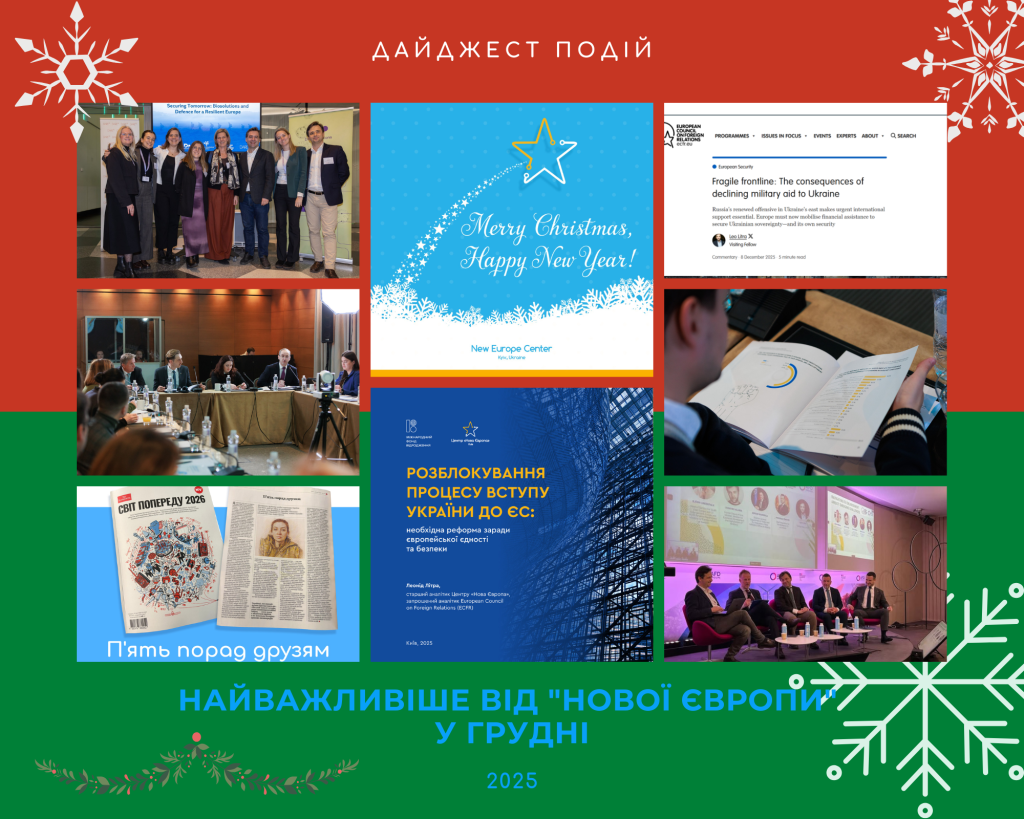Comment by Alyona Getmanchuk for “The Globe and Mail“.
Ukraine’s political opposition is calling on President Volodymyr Zelensky’s office to release its version of a phone call with U.S. President Donald Trump that has led to impeachment hearings in the United States.
Opposition MP Oleksiy Goncharenko told The Globe and Mail that he believed that an audio recording of the conversation existed, and he called for it to be made public so that Ukrainians and Americans alike could hear whether and how Mr. Trump applied pressure on Mr. Zelensky.
“I think that when we’re talking about pressure, it’s very important to hear the conversation itself. There are different ways to pronounce things – and the non-verbal part is very important as well,” Mr. Goncharenko said. A member of former president Petro Poroshenko’s political party, Mr. Goncharenko said officials who had worked in Mr. Poroshenko’s administration told him that it was long-standing protocol for the Ukrainian presidency to record all conversations with foreign leaders.
The Globe was unable to confirm on Friday whether an audio recording existed. Several current and former government officials, including two former foreign ministers, said that if such recordings were routinely made, they weren’t aware of them. One government adviser said that didn’t mean the recordings didn’t exist, since fears of Russian espionage meant that the number of people given access to Ukraine’s equivalent of the White House “situation room” is kept deliberately small.
A spokeswoman for Mr. Zelensky’s office did not answer calls or e-mails from The Globe on Friday.
The White House has acknowledged that the transcript it released this week is not a verbatim record of the call. In three separate places – all of them when Mr. Trump is speaking – ellipses are used to indicate some words may be missing.
Even the redacted version, which records Mr. Trump asking a foreign leader to investigate one of his own political rivals, has been enough to spark a political firestorm. Democratic lawmakers say they are determined to impeach the U.S. President over his conduct on the call, which coincided with Mr. Trump ordering a slowdown in the delivery of military aid to Ukraine.
Whether an audio file of the conversation exists, several Ukrainian government officials, as well as Western diplomats, said they believed Mr. Zelensky’s office was weighing whether to share its own transcript of the July 25 phone call with a U.S. Congressional delegation that was due to arrive in Ukraine on Saturday. The Globe is keeping the names of the officials and diplomats confidential because they were not authorized to discuss the matter publicly.
The trip, headed by John Garamendi, a Democrat and a member of the House armed services committee, was planned before a whistle-blower raised concerns about Mr. Trump’s call to Mr. Zelensky, and the itinerary is thus focused on defence issues. Mr. Garamendi told CNN on Friday that he nonetheless hoped to meet with Ukrainian leaders to discuss the controversy, and particularly Mr. Trump’s summer decision – just before his call with Mr. Zelensky – to delay nearly US$400-million in military support for the country. The money was eventually released Sept. 11.
“Ukraine is a critical ally. Ukraine has been invaded by Russia. What does all this mean to Ukraine?” Mr. Garamendi said, alluding to the war in eastern Ukraine that pits the country’s army against Moscow-backed separatists. “What is the implication of the President withholding those funds for nearly 60 days?
The White House transcript quotes Mr. Trump asking Mr. Zelensky to open an investigation into former U.S. vice-president Joe Biden, a leading contender for the 2020 Democratic presidential nomination, as well as his son Hunter, who sat on the board of directors of Burisma, a Ukrainian energy company.
Ukraine’s National Anti-Corruption Bureau said on Friday that it was investigating activity at Burisma between 2010 and 2012 – before Hunter Biden joined the board in 2014.
In a separate part of the White House transcript, Mr. Zelensky expresses a willingness to buy more U.S.-made anti-tank weapons, and Mr. Trump replies by asking Mr. Zelensky to “do us a favour” and locate a computer server that was reportedly used to hack Democratic party e-mails during the 2016 election campaign.
The ellipses in the transcript released by the White House prompted Mr. Goncharenko, the Ukrainian MP, to write an official request to Mr. Zelensky’s office on Thursday, demanding a “full-text transcript” of the July 25 call. But Pavlo Klimkin, who served as foreign minister under Mr. Poroshenko, said Ukrainian lawmakers had no mechanism to compel the presidency to release any recordings or notes regarding the conversation with Mr. Trump.
On Friday, Mr. Trump continued his attack on the unknown whistle-blower who brought the affair to light, with Mr. Trump suggesting via his Twitter account that the whistle-blower could be a “partisan operative.” The President also used Twitter to declare that his conversation with Mr. Zelensky had been “perfect.”
Mr. Zelensky is also is facing criticism at home over the call, primarily for agreeing with Mr. Trump and criticizing German Chancellor Angela Merkel and French President Emmanuel Macron “not doing quite as much as they need to be doing” to aid Ukraine.
“Trump can say whatever he wants,” Mr. Goncharenko said. “But for Ukraine, our aim is integration into the European Union and it’s very clear that relations with European leaders are very important to us. The President should not be speaking this way.”
Alyona Getmanchuk, the director of the New Europe Centre, a Kiev-based think tank, said the remarks about Ms. Merkel and Mr. Macron could be damaging to Ukraine since France and Germany were the countries mediating talks with Russia over the conflict in the Donbass region. “It could undermine the trust,” she said.
Ms. Getmanchuk said there was also concern in Ukraine about Mr. Zelensky’s assertion, as recorded by the White House transcript, that the country’s new attorney-general would be “100-per-cent my person, my candidate” and would “look into the situation” regarding Mr. Biden’s son’s company.
Volodymyr Ohryzko, who served as Ukraine’s foreign minister from 2007 to 2009, said the best thing that Mr. Zelensky and his government could do now was to avoid getting dragged deeper into U.S. domestic politics.
“It is not a Ukrainian but an American problem and Ukraine should [stay] far away from it,” he said.







